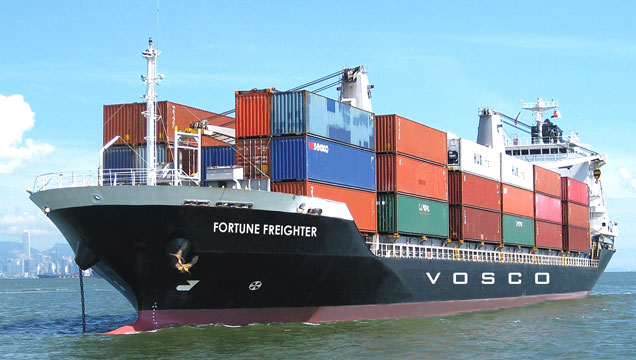VOSCO has been unable to pay cash dividends for over 12 years.

After more than 50 years of operation, Viet Nam Ocean Shipping JSC (VOSCO) is struggling as a global economic slowdown and intensifying competition within the industry have caused a decline in transportation demand, said SBS Securities.
As a result, the company's profitability has been steadily decreasing.
In the third quarter of 2023, VOSCO's net revenue reached VNĐ715.8 billion (US$29.2 million), almost flat from the same period last year, while its profit after tax was negative by more than VNĐ23.3 billion.
For the first nine months of 2023, the company’s net revenue still increased by 26 per cent to nearly VNĐ2.3 trillion, but profit after tax plummeted 89 per cent to just over VNĐ50.8 billion.
Maritime transportation companies, including VOSCO, were severely affected by the COVID-19 pandemic in 2020 and the global economic downturn.
This has led to a decrease in demand, intensifying industry competition, while a recent decline in freight rates has also posed significant challenges for firms in the industry.
VOSCO currently owns and operates a fleet of 13 vessels, totalling approximately 460,000 dwt. The fleet consists of eight dry cargo and bulk cargo ships, three oil tankers and two container vessels.
The company planned to sell the general cargo vessel Neptune Star in 2023, which accounts for around 7.1 per cent of the fleet's total deadweight. In 2024, it is also expected to sell the oil tanker Đại Minh, but the sale has yet to be finalised, leading to potentially unfavourable quarter-four financial results, according to SBS.
In the long term, the company intends to expand its fleet to 23 vessels by 2027, including 16 dry cargo ships with nine outsourcing, four oil tankers, and three container vessels. A projected total deadweight is approximately 800,000 dwt.
Persistent risks
VOSCO has experienced challenges for a considerable period, resulting in a decrease in both the scale and quality of its fleet. Obstacles have also hindered investment opportunities and fleet rejuvenation.
According to SBS, the Houthi attacks in Yemen's Red Sea have disrupted international trade through the Suez Canal, which serves as the shortest shipping route between Europe and Asia, accounting for approximately one-sixth of global maritime transport volume.
If this situation persists, transportation costs will rise as vessels are forced to take longer routes, leading to rising inflation during a period of declining transportation demand and slowing global economic growth.
In the challenging background, the securities firm believes that VOSCO faces investment risks in operating their dry cargo and container vessels below cost and waiting for improved freight rates to operate at higher prices.
This has resulted in a decrease in VOSCO's operational efficiency as operating costs continue to rise.
Moreover, in the current economic difficulties and instability, the volume of traded goods is expected to fall significantly.
SBS recognises VOSCO as one of Việt Nam’s leading maritime transportation companies, catering to a wide range of domestic and international clients. VOSCO boasts a diverse fleet, comprising dry cargo carriers, oil tankers and container ships, operating seamlessly on both domestic and international routes.
However, ahead of a challenging economic situation and numerous uncertainties, the sharp decrease in demand and low freight rates have severely impacted the company’s profitability.
Furthermore, VOSCO has been unable to pay cash dividends for over 12 years.
On the stock market, the company’s shares (VOS) were traded at VNĐ11,350 per share at 2.26pm local time, down 2.16 per cent. However, the price is currently higher than SBS’s valuation, causing the securities to assess VOS shares as a high-risk investment for the long term.
As a result, SBS suggests selling VOS shares. — VNS





